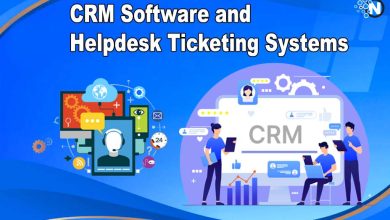
Benefits of logistics visibility software in the e-commerce sector
Logistics visibility software plays a crucial role in e-commerce, providing numerous benefits that help businesses unlock a competitive advantage. By incorporating this software into their supply chain management system, e-commerce companies can streamline their shipping and logistics operations, leading to improved efficiency and customer satisfaction.
Real-time tracking and monitoring of shipments:
Logistics visibility software enables real-time tracking and monitoring of shipments throughout the entire supply chain. With this technology, e-commerce businesses can easily track the movement of their products, from the moment they leave the warehouse to the final delivery. Real-time visibility allows companies to proactively address any potential delays, minimize disruptions, and provide accurate delivery updates to customers. This level of transparency improves operational efficiency and enhances customer trust and confidence.
Enhanced delivery accuracy and speed:
With logistics visibility software, e-commerce companies can achieve enhanced delivery accuracy and speed. The software provides real-time information on shipment status, including location, estimated time of arrival, and any potential issues or delays. Armed with this data, businesses can optimize their delivery routes, coordinate with freight forwarding services more effectively, and ensure timely and accurate deliveries. By reducing delivery errors and meeting customer expectations, e-commerce companies can establish a reputation for reliability and gain a competitive edge in the market.
Improved customer experience and satisfaction:
Logistics visibility software significantly improves the overall customer experience in e-commerce. By providing customers with real-time tracking information and accurate delivery estimates, businesses can keep their customers informed and engaged throughout the shipping process. This transparency builds trust and enhances customer satisfaction. In the event of any unforeseen delays or issues, proactive communication enabled by logistics visibility software allows businesses to address concerns promptly and provide alternative solutions. Ultimately, e-commerce companies can foster customer loyalty and drive repeat purchases by consistently meeting or exceeding customer expectations.
Read Also: Legacy Software Upgrade: Future-proofing Legacy Systems with Minimal Disruption
Key features and functionalities of logistics visibility software
Logistics visibility software offers key features and functionalities that are essential for managing the complexities of the supply chain and mitigating risks. By incorporating this software into their operations, companies can achieve end-to-end supply chain visibility, enabling them to proactively address issues, optimize processes, and make data-driven decisions. Let’s explore the key features and functionalities of logistics visibility software:
Logistics visibility software provides robust shipment tracking and tracing capabilities. It allows companies to monitor the movement of goods in real-time, from the point of origin to the final destination. This visibility enables businesses to track individual shipments, identify their current location, and estimate their time of arrival. By having access to this information, companies can proactively manage exceptions, address delays, and keep stakeholders informed about the status of each shipment.

Real-time alerts and notifications:
Logistics visibility software offers real-time alerts and notifications, keeping supply chain stakeholders updated on critical events or exceptions. These alerts can include information about shipment delays, changes in delivery schedules, or any disruptions that may impact the supply chain. By receiving timely alerts, companies can take immediate action, collaborate with relevant parties, and minimize the potential impact of unforeseen events.
Integration with multiple carriers and logistics partners:
Logistics visibility software enables seamless integration with multiple carriers and logistics partners. This integration allows for the exchange of data and information, ensuring visibility across the entire supply chain network. By connecting with different carriers and partners, companies can consolidate data from various sources, eliminate information silos, and gain a comprehensive view of their visible supply chain. This integration enhances collaboration, facilitates efficient decision-making, and enables effective risk management.
Data analytics and reporting for performance analysis:
Logistics visibility software provides robust data analytics and reporting capabilities. It collects and analyzes vast amounts of supply chain data, generating valuable insights and performance metrics. Through detailed reports and dashboards, companies can monitor key performance indicators, identify areas for improvement, and optimize their supply chain processes. This data-driven approach allows businesses to make informed decisions, enhance operational efficiency, and mitigate supply chain risks.
Implementation considerations for logistics visibility software in e-commerce
Implementing logistics visibility software in e-commerce requires careful consideration and planning to ensure a smooth integration process. Companies should take into account several key factors to maximize the benefits of the software and minimize potential challenges. Here are the implementation considerations for logistics visibility software in e-commerce:
Evaluating and selecting the right software provider:
Choosing the right software provider is crucial for successful implementation. E-commerce businesses should thoroughly evaluate different supply chain consulting firms and logistics companies that offer logistics visibility software solutions. Consider factors such as their expertise, experience, track record, and software’s specific features and functionalities. It is essential to select a provider that aligns with the unique requirements and goals of the business.
Integration with existing e-commerce platforms and systems:
Integration with existing e-commerce platforms and systems is a critical consideration during the implementation of logistics visibility software. Compatibility and seamless integration are essential to ensure smooth data flow and exchange between different systems. The software should integrate with e-commerce platforms, order management, inventory management, and other relevant software to enable accurate and real-time data sharing.
Ensuring data security and privacy compliance:
Data security and privacy are of utmost importance in e-commerce. When implementing logistics visibility software, companies must ensure that proper data security measures are in place. This includes encryption of sensitive data, secure storage, access controls, and compliance with relevant regulations such as GDPR or CCPA. Implementing data anonymization techniques and obtaining the necessary consent from customers is crucial to protect their privacy.
Training and change management for employees:
Effective training and change management are essential to ensure the successful adoption of logistics visibility software. Employees should receive comprehensive training on using the software, understanding its functionalities, and leveraging its capabilities to optimize logistics management processes. Additionally, change management strategies should address any resistance to change and foster a positive mindset towards adopting the new software.
By considering these implementation considerations, e-commerce businesses can successfully deploy logistics visibility software and maximize its benefits. It enables improved visibility, enhanced operational efficiency, and better decision-making in logistics management. Effective implementation helps businesses gain a competitive edge, deliver superior customer experiences, and optimize their supply chain processes.




